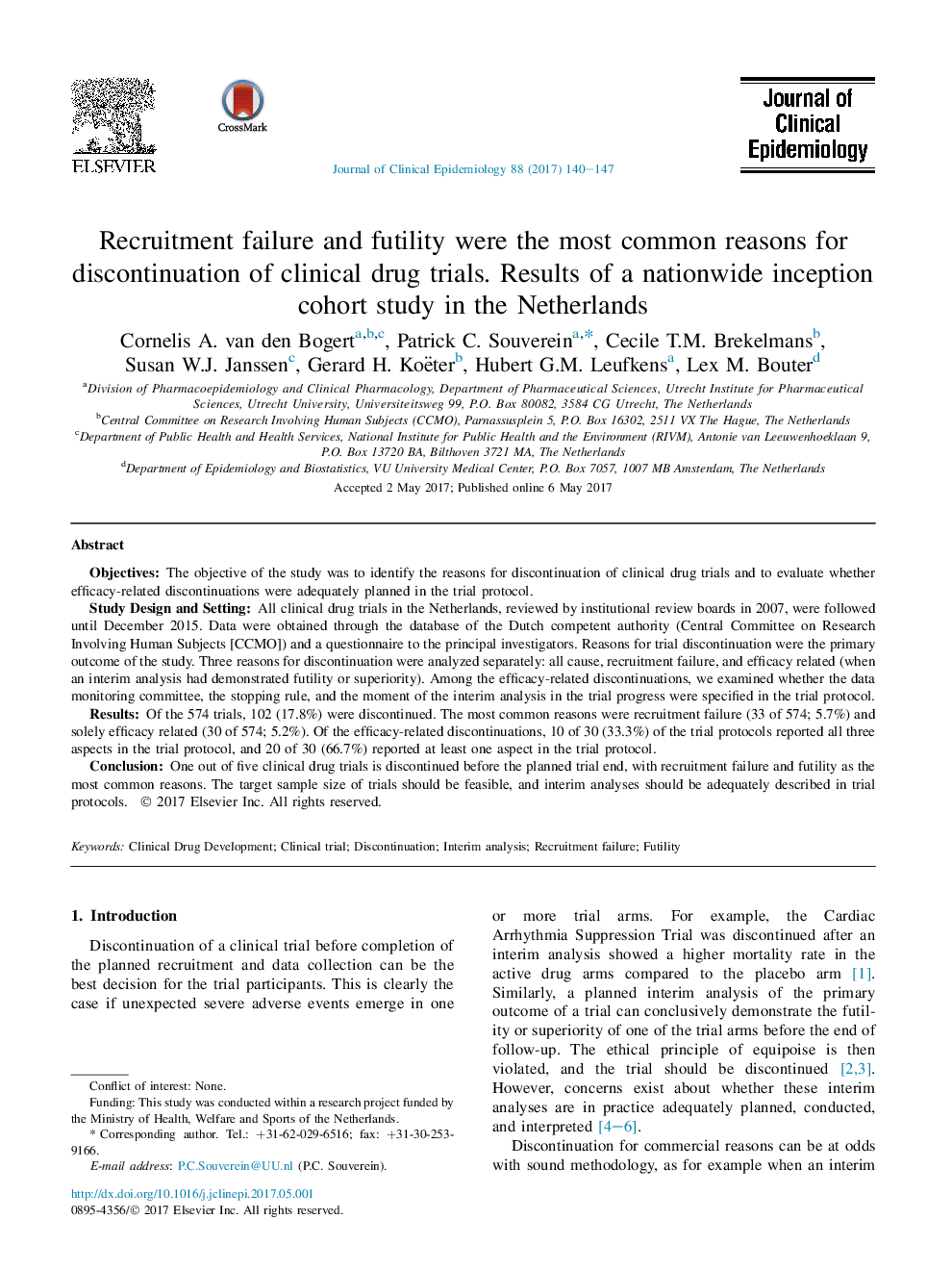| کد مقاله | کد نشریه | سال انتشار | مقاله انگلیسی | نسخه تمام متن |
|---|---|---|---|---|
| 5121702 | 1486838 | 2017 | 8 صفحه PDF | دانلود رایگان |
ObjectivesThe objective of the study was to identify the reasons for discontinuation of clinical drug trials and to evaluate whether efficacy-related discontinuations were adequately planned in the trial protocol.Study Design and SettingAll clinical drug trials in the Netherlands, reviewed by institutional review boards in 2007, were followed until December 2015. Data were obtained through the database of the Dutch competent authority (Central Committee on Research Involving Human Subjects [CCMO]) and a questionnaire to the principal investigators. Reasons for trial discontinuation were the primary outcome of the study. Three reasons for discontinuation were analyzed separately: all cause, recruitment failure, and efficacy related (when an interim analysis had demonstrated futility or superiority). Among the efficacy-related discontinuations, we examined whether the data monitoring committee, the stopping rule, and the moment of the interim analysis in the trial progress were specified in the trial protocol.ResultsOf the 574 trials, 102 (17.8%) were discontinued. The most common reasons were recruitment failure (33 of 574; 5.7%) and solely efficacy related (30 of 574; 5.2%). Of the efficacy-related discontinuations, 10 of 30 (33.3%) of the trial protocols reported all three aspects in the trial protocol, and 20 of 30 (66.7%) reported at least one aspect in the trial protocol.ConclusionOne out of five clinical drug trials is discontinued before the planned trial end, with recruitment failure and futility as the most common reasons. The target sample size of trials should be feasible, and interim analyses should be adequately described in trial protocols.
Journal: Journal of Clinical Epidemiology - Volume 88, August 2017, Pages 140-147
